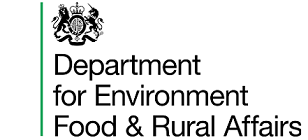Call for Evidence: Non-Road Mobile Machinery and Red Diesel
Overview
Non-road mobile machinery and red diesel
Excluding use for agriculture, fishing vessels, home heating and static generators
At Spring Statement 2018, the government announced a call for evidence on the use of rebated gas oil (often called red diesel) by non-road mobile machinery (NRMM - a class of portable, engine-operated machinery), in order to improve its understanding of what is preventing users from switching to cleaner technologies. Red diesel for agricultural use is outside the scope of this call for evidence, as is use by fishing vessels, home heating use and static generators.
Later in the year, the government will consult on the Clean Air Strategy, setting out how we will work towards our emission reduction targets as well as continuing to deliver air quality improvements in the UK. This will require contributions from a range of emission sources, and today we are issuing this call for evidence to improve the data sources available to government about NRMM red diesel use and to contribute to a better evidence base for future policies.
This publication also builds on the previous call for evidence into the use of red diesel, launched on 20 March 2017.
As well as continued commitment to meeting legal limit values set for concentrations of pollutants, the UK has ambitious targets in place to reduce emissions of five damaging air pollutants (ammonia, nitrogen oxides, non-methane volatile organic compounds, fine particulate matter and sulphur dioxide) by 2020 and 2030.
Between 2010 and 2016, UK emissions of nitrogen oxides fell by almost 27 per cent. Air quality will continue to improve thanks to the action we have already taken. However, we recognise that more needs to be done which is why the government has committed £3.5 billion for tackling poor air quality and cleaner transport.
Red diesel use makes up over 15% of total diesel use, and we believe the majority of red diesel is used by NRMM. This call for evidence is therefore focused on NRMM. The supply chain that links end users to the original refinery is regulated, hence the government has a good understanding of the suppliers and distributors of red diesel. However, the government has less information about end users and the geographic spread of red diesel use, and would like a better understanding of why red diesel is used, and what are the main barriers to switching to cleaner technologies.
We also want to know what cleaner alternatives currently exist. This information is relevant because of the impact diesel usage has on air quality, especially in urban areas where multiple uses of red diesel may be concentrated in single locations.
The government invites evidence on red diesel to explore the quantities used across different sectors, the value of the fuel duty rebate to those industries which benefit, the reasons for red diesel use and the cleaner alternatives that currently or will soon exist. We welcome data on equipment numbers, use, lifespan and cleaner alternatives, either technologies or practices.
This call for evidence will inform considerations for Budget 2018 about how best to encourage those who use mobile machinery, particularly in urban areas, to purchase cleaner alternatives.
Anyone with an interest in red diesel is encouraged to share their views. However, we would be particularly interested in the views of users, manufacturers and suppliers of NRMM, red diesel suppliers and industries that benefit from the use of red diesel and hold data we require. The government also invites environmental groups and representative bodies to submit their views. Genuine use in agriculture and fishing vessels is excluded, as is home heating use and other static generators.
Information about this Call for Evidence
Part 2 covers the technical nature of red diesel. Part 3 sets out the environmental impacts of air pollution, and the action the government has already taken to improve air quality. In particular, it concentrates on how far emissions of air quality pollutants from NRMM contribute to the UK’s overall air pollution situation, which is most acute in some of our urban areas.
Annex A gives a list of categories of non-road mobile machinery and Annex B gives information about licences, supply chain and international comparisons.
If respondents feel that there are issues that are not covered by the questions set out, but which are relevant to the government’s call for evidence, they are welcome to submit additional evidence in their response.
How to respond
Responses are requested by 24 July 2018. The government cannot guarantee that responses received after this date will be considered.
The government invites feedback on the annexes to this document, in addition to the specific questions raised in the consultation document.
If you feel sections are not relevant to you, please leave them blank and move onto the next section of the Call for Evidence.
Responses can be submitted online using the link below. They can also be sent by email to cleanair.consultations@defra.gsi.gov.uk
Alternatively, they can be posted to:
Air Quality and Industrial Emissions Team
Department for Environment, Food and Rural Affairs
Area 2C, Nobel House
17 Smith Square
London
SW1P 3JR
When responding, please state whether you are doing so as an individual or representing the views of an organisation. If you are responding on behalf of an organisation, please make clear who the organisation represents and, where applicable, how the views of members were assembled. In the case of representative bodies, please provide information on the number and nature of people or organisations that the body represents.
Audiences
- Aggregates sector
- Business/Private Sector
- Charities/Voluntary Organisations
- Coastal local authorities
- Energy sector
- Environmental campaigners
- Environmental professional services
- Local Authorities
- SME businesses
- Waste Management Companies
- Waste Producers and Handlers
Interests
- Air pollution
- Air quality
- Climate change
- Construction
- Consultations
- Inland waterways
- Natural environment
- Pollution Sector
- Resource Efficiency



Share
Share on Twitter Share on Facebook